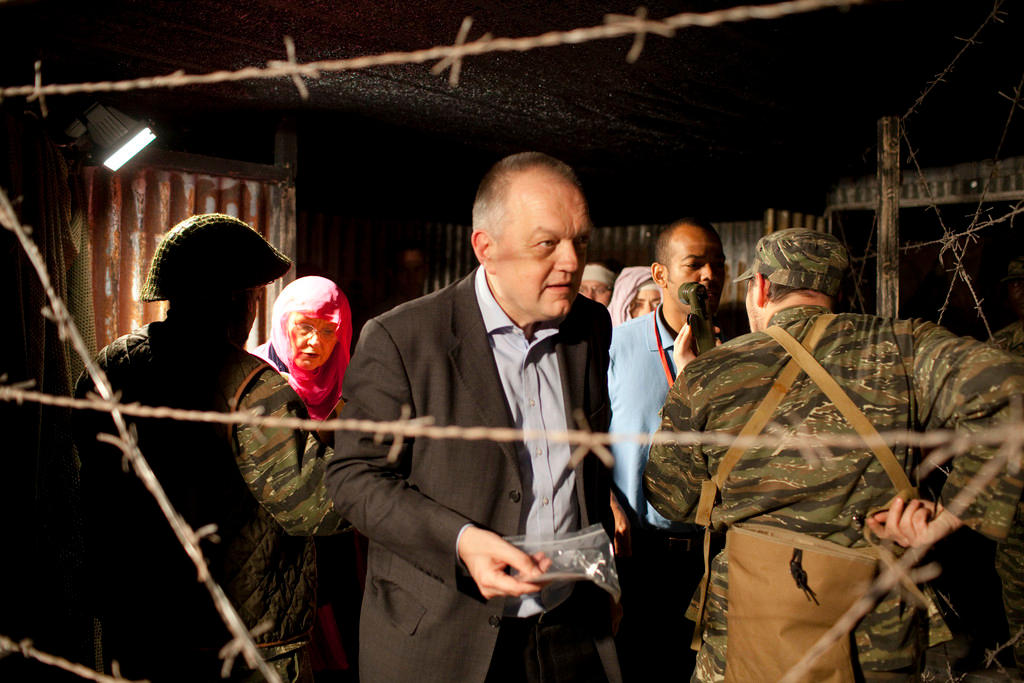
How to be a middle class, privileged refugee

Sharing a tent with the chairman of pharmaceutical giant Roche, as we both pretended to be refugees of a war-torn country, is not how I usually start my day. But before I got the chance to know Christoph Franz better, he was dragged out by an armed guard who demanded to know where he had stashed his weapons.
He got off lightly. I had my bread roll roughly snatched out of my hand and was forced to weave past dead bodies to a holding cell for refusing to betray the identity of my leader. While my editor may be pleased with my loyalty, it was rather uncomfortable kneeling in the cell, facing the wall.
But there was a serious side to the exercise. Every year, wealthy delegates to WEF Davos voluntarily put themselves through this process to learn a little of what it is like to be displaced and under constant threat. The Refugee Run simulation is staged by the Hong Kong-based Crossroads Foundation charity.
Our guards for the day were former refugees and humanitarian workers who have witnessed the trials of displaced persons at first hand. It is staged, rather incongruously, in the basement of a luxury hotel in Davos. As we exited, signs pointed the way to the hotel spa.
The message, however, was real. As we were informed at the start of the simulation, at the end of World War II there were six million displaced persons – there are now an estimated 65 million.
According to the International Committee of the Red Cross (ICRC), around 4.8 million Syrian refugees have fled their war-torn state and another 6.3 million are displaced within this one country.
You can witness my trials on Wednesday morning when we post a video blog shot during my hour-long ordeal. United Nations officials have praised the simulation as a “very tame” version of the real thing.

In compliance with the JTI standards
More: SWI swissinfo.ch certified by the Journalism Trust Initiative




























You can find an overview of ongoing debates with our journalists here . Please join us!
If you want to start a conversation about a topic raised in this article or want to report factual errors, email us at english@swissinfo.ch.